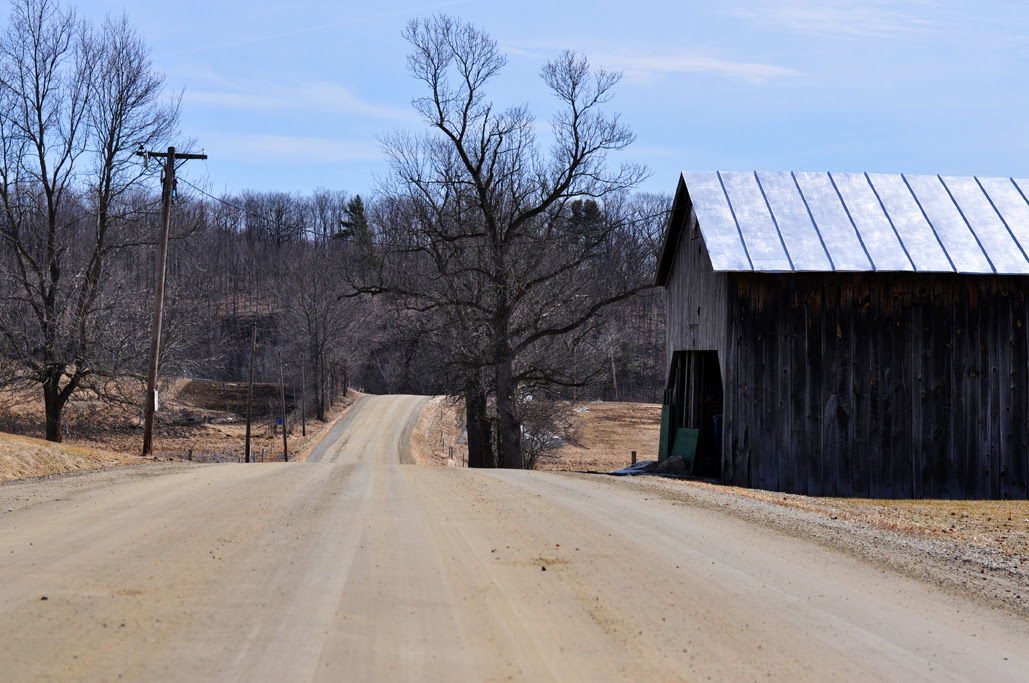View this email in your browser

twitter | facebook | website | instagram

Best Methods to Encourage Mask-Wearing During the Pandemic
A recent study examined people’s motivations for and against wearing masks during the COVID-19 pandemic in Franklin County, Vermont. People for mask-wearing had motivations like keeping their family members and immuno-compromised friends safe. People who sometimes or never wore masks generally did so for reasons like glasses fogging up, difficulty being heard and COVID skeptiscm. The August 1 mask mandate increased mask-wearing from 84.6% of survey respondents prior to 97.3% after.

Voter fraud!
In the election of 1844 that is (!) See — “As In Your Conscience:” Voting in Vermont — a new virtual exhibit sponsored by the Vermont Historical Society illustrating how much has changed, with examples of early paper ballots and instructions to voters. It also showcases how much has not changed.
Vermont Flood Protection
The National Flood Insurance Program provides subsidized flood insurance to communities across the U.S. However, local governments must enforce certain standards such as zoning requirements and building codes to qualify. Rural governments often struggle to have the authority and budget to meet these demands. A recent study of Vermont, Pennsylvania, and West Virginia, looked at how these states have responded. In Vermont, individual municipalities have the authority to regulate development to meet the requirements of the NFIP.

Fish Foraging in Vermont Winters
A recent study observed the feeding habits of various species of fish in Lake Champlain during winter. They found that sunfish (left image), which are more adapted to warmer environments, foraged significantly less than yellow perch (right image), which are adapted to cooler environments. Population balances are expected to change as climate change causes warmer winters going forward.

Heavy Rainfall Impacting Invertebrate Populations
Over the past few years, Vermont has seen increasingly frequent and heavy rainfall, which has led to occasional minor flooding. High stream flow causes many types of macroinvertebrates to be crushed by water levels. A recent study looked at macroinvertebrate response to rainfall and floods. Results indicate these invertebrates are capable of repopulating after single significant storms, such as tropical storm Irene back in 2011. Cases involving sustained frequent rainfall, however, are harder to recover from.
Public health framing of gun violence
Following a potential school shooting incident in 2018, Governor Phil Scott supported a series of gun control laws. A new study looks at how the issue was framed in public health terms, drawing from data and strategies used in public health campaigns in early childhood development, mental health and substance abuse.

Erosion from Dirt Roads Affecting Water Quality
Past research has indicated that erosion from unpaved roads in Vermont has impacted water quality through the discharge of stormwater, sediment, and other pollutants into nearby waters. A recent study has shown that gullies from concentrated road discharge points, which lead to receiving waters, are increasing in volume. Data gathering will continue through June 2021.
Barriers to Early Lung Cancer Detection in Vermont
Lung cancer persists as the leading cause of cancer death among men and women with mortality rates in rural populations much higher than urban counterparts. Estimates show that rural areas have nearly twice the lung cancer incidence of the largest metropolitan areas. Screening programs in counties of Vermont with lower levels of education provide local citizens with access, the study finds.

Hopeful Approach to Climate Change
Town officials hosted an interdisciplinary climate change planning workshop in Londonderry, Vermont to explore emotionally-conscious climate change planning methods. This small town has struggled to recover from Tropical Storm Irene and continued unprecedented flooding and rainfall. The climate change planning workshop utilized an open-ended, hopeful dialogue rather than a crisis approach. The shift in dialogue can generate positive feelings, and responsibility, care and solidarity.

The Association of E-cigarette Use and Suicidal Ideation
A study conducted by UVM graduate students explored the association between e-cigarette usage and suicidal ideation among more than 15,000 Vermont high school respondents. E-cigarette use was found to be related to suicidal ideation, yet more research is needed to understand the relationship.
Sex Education in Vermont Public Schools
Although sex education is mandated in Vermont schools — including information about contraceptives and effective condom use — the topic is challenging to some educators. A 2019 study examined the characteristics of public high school teachers and how those characteristics influenced their sex ed teaching approaches.

Celebrating the First Female Governor of Vermont
With women poised to lead the offices of Lt. Governor and both branches of the legislature, a new exhibit looks at Vermont’s first women governor, Madeleine Kunin. Elected in 1984, Gov. Kunin focused on education, healthcare, and the environment, starting programs like Dr. Dynasaur — which provided low-income children with access to healthcare — and championing more women to seek public office
Have an opinion on any of this? Post it here!

Vermont Dept of Health
Weekly Data Summaries
COVID Testing
Copyright © 2019 Center for Research on Vermont, All rights reserved.
The Vermont Research News is a bi-monthly curated collection of Vermont research — focused on research in the Vermont “laboratory” — research that provides original knowledge to the world and research that adds to an understanding of the state’s social, economic, cultural and physical environment. Thanks to support from the Office of Engagement at UVM.
Send your news items to Newsletter Editors Martha Hrdy or Richard Watts. In a collaboration with VT Digger, the newsletter is now published online. CRVT is responsible for the content. The newsletter is published on the 1st and 15th of each month.

